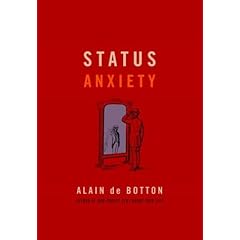 Screenwriters' Masterclass
Screenwriters' Masterclass (Book #13) doesn't tell you how to write a screenplay, how to chop the story into three acts, or how to sell your spec script to Hollywood. There are many books which do that out in the market. They cost a lot and after reading a couple of these, they all begin to sound the same. But in the end, you throw out the books and whatever they're saying out the window.
What those guides don't tell you is how the writer actually grapples with the ideas in his head, that how stories are conceived and written is different for each story and for each writer. How in the end, no matter how much you study dramatic structure and you can quote fifty different definitions of what a plot point is, In the end, it's still you and the computer (or the pen and paper, whatever) and how your gut feel guides you in telling the story.
What Kevin Conroy Scott did was he put together nineteen screenwriters and asked them to talk about their movies. The lineup of writers and movies is more contemporary than classical, art house/indie favorites are pitted against genre/pop. Think Amores Perros/Requiem for a Dream vs Out of Sight/Die Another Day. The European sensibility is represented by Francois Ozon (Under the Sand) and Lukas Moodyson (Together); the Latin Americans are accounted for. It's through that out of nineteen writers, only one woman made the cut (Lisa Chodolenko/High Art) and there are no Asians.
But when it comes to the writing, everyone is united by the process. Conroy Scott's favorite question seems to be, "Can you walk me through your writing process?" There's someone who favors typing out his script, others insist on a 5-page quota for the day and spend the rest of the day doing other things. Paul Laverty insists on doing research and living with his intended subjects. He hung out a lot with the Mexicans and Guatemalans who cleaned houses in LA and whose stories eventually became the seed for "Bread and Roses."
The actual writing may take six months to six years. What's also remarkable was that at one point almost all the writers hit a phase where they sit up, stop and ask themselves, "What the hell am I doing?" That's when Scott pops his next favorite question, "What do you do with self-doubt?" This is apparently inevitable. You try to ignore it, you forge on and write and hopefully a solution presents itself later on.
Scott's film school education manifests itself when he starts quoting a lot of theory and Ingmar Bergman and follows that up with "So do you agree with that?" At one point, Scott quoted Bergman as saying that Lukas Moodyson is "a young master" of Swedish cinema. I suppose whenever people think of Swedish cinema, Bergman is the first thing that comes to mind. But Moodyson probably surprised Scott by saying that Bergman never really became popular in Sweden. While the National Film Institute of Sweden sends Bergman all the movies made that year for him to screen in his private home theater, the young Swedes just make their movies and pretty much shrug their shoulders to Bergman's pronouncements.
Most of the writers view themselves as "accidents." When asked whether literature or the arts played a huge role in their childhoods, most would say, yes, the family encouraged them. Or that there were lots of books in the house. Or you get someone like Moodyson who just wanted to listen to loud music and didn't like reading. His view of writing is that he's pretty much like a human Ouija board. The story is out there, he's just the medium.
Then you get a lawyer like Paul Laverty, who was supposed to become a priest but quit when he saw the cute Italian girls in Rome. Then he got sent to Nicaragua and saw what was happening. He wrote something about that experience, and when the film was finished, he brought the film reels back to the village which inspired the story. Laverty emphasizes a grassroots approach to filmmaking. He does say that "you can't copy a screenplay from life. But in many ways we've touched their experience and we've gained a great deal of insight from their lives through them. So it's a matter of respect, and in a strange sort of way it's a way of thanking and recognizing that they are the authors of the piece."
I liked the emphasis that writers placed on research--unless you are Moodyson. But also, the book gives you a great rare glimpse into how writers basically squirm around until the story's out there. Then you're free until the hell that is revision begins. More revisions if the film is connected with major stars and big studios.
This is a great book if you want more than just a guide on how to write a script. Most of the writers interviewed didn't even know what a script looked like. They got hold of the legendary Syd Field book, read sample scripts, then chucked everything out the window and wrote.
Also, this was a great buy for me. I've been eyeing this book for such a long time in Powerbooks but it was just so expensive. The acid-free paper edition retails for PhP1,300+. My copy was originally going for P995 but I got it on sale and only paid for PhP199. Not bad, not bad at all.
Screenwriters' Masterclass: Screenwriters Talk About Their Greatest Movies. Edited by Kevin Conroy Scott. Faber and Faber, 2005.




